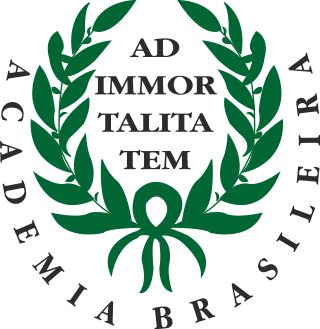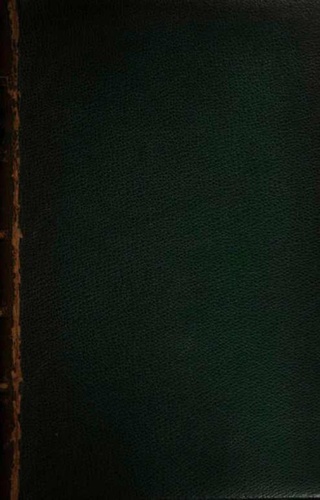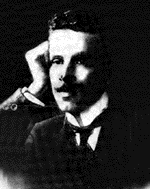
Joaquim Maria Machado de Assis, often known by his surnames as Machado de Assis, Machado, or Bruxo do Cosme Velho, was a pioneer Brazilian novelist, poet, playwright and short story writer, widely regarded as the greatest writer of Brazilian literature. Nevertheless, Assis did not achieve widespread popularity outside Brazil during his lifetime. In 1897, he founded and became the first President of the Brazilian Academy of Letters. He was multilingual, having taught himself French, English, German and Greek later in life.

Brazilian literature is the literature written in the Portuguese language by Brazilians or in Brazil, including works written prior to the country's independence in 1822. Throughout its early years, literature from Brazil followed the literary trends of Portugal, gradually shifting to a different and authentic writing style in the course of the 19th and 20th centuries, in the search for truly Brazilian themes and use of Brazilian forms.

The Academia Brasileira de Letras (ABL) is a Brazilian literary non-profit society established at the end of the 19th century. The first president, Machado de Assis, declared its foundation on Tuesday, 15 December 1896, with the by-laws being passed on Thursday, 28 January 1897. On Tuesday, 20 July of the same year, the academy started its operation.

Lygia Fagundes da Silva Telles was a Brazilian novelist and writer. Educated as a lawyer, she began publishing soon after she completed high school and simultaneously worked as a solicitor and writer throughout most of her career. She was a recipient of the Camões Prize, the highest literary award of the Portuguese language and her works have received honors and awards from Brazil, Chile and France. She was elected as the third woman in the Brazilian Academy of Letters in 1985 and held Chair 16.

The Posthumous Memoirs of Brás Cubas, also translated as Epitaph of a Small Winner, is a novel by the Brazilian writer Joaquim Maria Machado de Assis.

José Pereira da Graça Aranha was a Brazilian writer and diplomat, considered to be a forerunner of the Modernism in Brazil. He was also one of the organizers of the Brazilian Modern Art Week of 1922.

Quincas Borba is a novel written by the Brazilian writer Machado de Assis. It was first published in 1891. It is also known in English as Philosopher or Dog? The novel was principally written as a serial in the journal A Estação from 1886 to 1891. It was definitively published as a book in 1892 with some small but significant changes from the serialized version.

Ignácio de Loyola Brandão is a Brazilian writer, perhaps best known as the author of the dystopian science-fiction novel Zero; the story of Brazil in the 1960s under a totalitarian regime. In 2008, he was awarded the Prêmio Jabuti for his novel O Menino que Vendia Palavras.
"O alienista" is a satiric novella written by the Brazilian author Machado de Assis (1839–1908). The story ran in Rio de Janeiro's newspaper A Estação, then was published in 1882 as part of the author's short-story collection Papéis avulsos. An English translation was published in 1963.
Afro-Brazilian literature has existed in Brazil since the mid-19th century with the publication of Maria Firmina dos Reis's novel Ursula in 1859. Other writers from the late 19th century and early 20th century include Machado de Assis, Cruz e Sousa and Lima Barreto. Yet, Afro-Brazilian literature as a genre that recognized the ethnic and cultural origins of the writer did not gain national prominence in Brazil until the 1970s with the revival of Black Consciousness politics known as the Movimento Negro.
Capitu is a Brazilian television series written by Euclydes Marinho, directed by Luiz Fernando Carvalho, who also finalized the script, and presented by Rede Globo between 8 and 13 December 2008. The production was a homage to the centennial anniversary of the death of Machado de Assis, author of the 1899 novel Dom Casmurro, on which the miniseries was based. Capitu is the main female character of that novel, and is the object of Bentinho's obsession. The novel forces the reader to decide if Capitu cheated or not on Bentinho.
Helen Caldwell (1904-1987) was a scholar and Brazilianist from California. Her work focuses on the 19th century Brazilian writer Machado de Assis. She completed the first English translation of Dom Casmurro, published in 1953. Her most famous work is Machado de Assis: The Brazilian Master and His Novels. She also translated 8 of the 12 stories in The Psychiatrist, and Other Stories in 1973.

Mário Cochrane de Alencar was a Brazilian poet, short story writer, journalist, lawyer and novelist. He was one of the children of famous novelist José de Alencar.

Letícia Persiles is a Brazilian actress and singer who played the lead role in the telenovela Amor Eterno Amor.

Milton Hatoum is a Brazilian writer, translator and professor. Hatoum is one of Brazil's most eminent contemporary writers. Among other honors, Hatoum was awarded Brazil's most prestigious literary award, the Jabuti Prize, three times for best novel. In 2017, he received the title of Officier de L'Ordre des Arts et des Lettres from the French government.

Events in the year 1899 in Brazil.

Vanessa Barbara is a Brazilian journalist and author. She is a columnist for the newspaper O Estado de S. Paulo, having also written for the magazine piauí and the newspaper Folha de S. Paulo. Her articles are also featured in the International New York Times.
Elvira Vigna was a Brazilian writer, illustrator and journalist.

Mario Cau is a Brazilian comics artist. One of his most prominent works is the webcomic Terapia, published from 2011 to 2018, about the psychotherapy sessions of a nameless boy. This webcomic was nominated as best webcomic in Troféu HQ Mix since 2012, winning in 2012 and 2014. Mario also won the 2013 Prêmio Jabuti in "best illustration" and "best school related book" categories by comics adaptation of classic book Dom Casmurro.

Best Comic Book is one of the categories of Prêmio Jabuti, a traditional Brazilian literature award that has been held since 1959.
















